Bahrain rights activist Nabeel Rajab rearrested - family
- Published
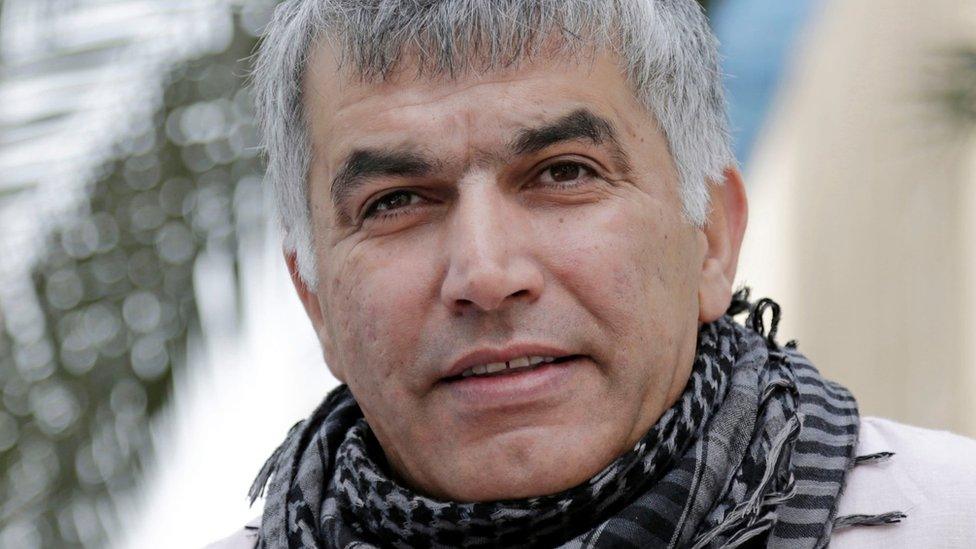
He was released from jail last July after being pardoned by King Hamad for health reasons
A leading Bahraini human rights activist, Nabeel Rajab, has been rearrested, his family says.
He was reportedly seized in an early morning raid on his home in the village of Bani Jamra, near the capital Manama.
It was not immediately clear why the 51-year-old was being detained. State media have not yet reported the arrest.
Mr Rajab, who founded the Bahrain Centre for Human Rights, has served several prison sentences since helping lead a pro-democracy uprising in 2011.
He was released from jail last July after being pardoned by King Hamad bin Isa Al Khalifa for health reasons, two months after an appeal court upheld a six-month sentence for "offending national institutions" in comments on social media.
On the day of his release, Mr Rajab was issued a new travel ban based on two outstanding charges, which prosecutors have not dropped.
He is accused of "insulting a statutory body" in comments about the alleged torture of detainees at Jaw prison, and "disseminating false rumours in times of war", based on criticism of air strikes in Yemen by a Saudi-led coalition including Bahrain.
'Frightening message'
Brian Dooley, director of the US-based group Human Rights First, told the Associated Press news agency that Mr Rajab's reported arrest was a "forceful, frightening message from the Bahraini government that it's moving against even activists with strong international connections".
It comes a week after another prominent activist fled to Denmark after reportedly being threatened with being imprisoned again.
Zainab al-Khawaja, who has both Bahraini and Danish citizenship, was released along with her infant son from jail last month on "humanitarian grounds".
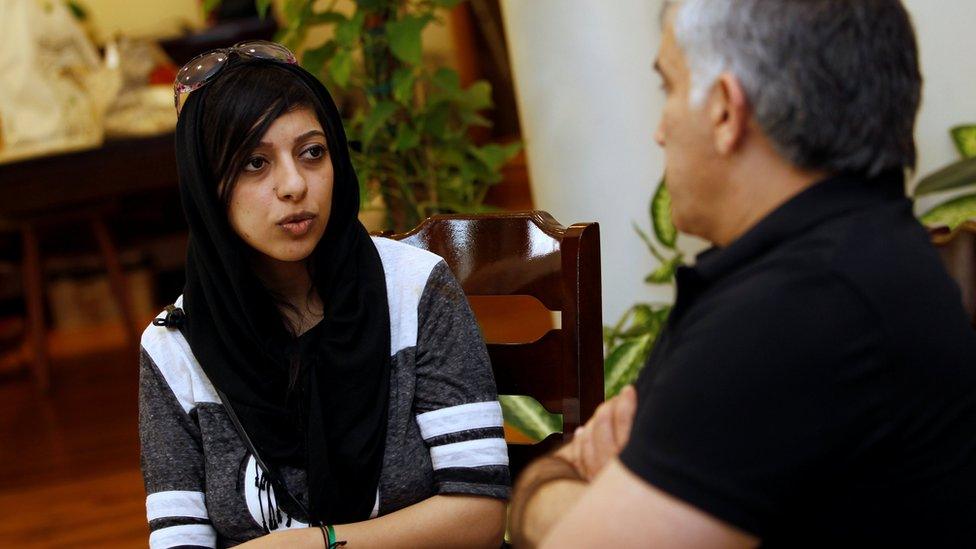
Zainab al-Khawaja (L) said she had fled the country after being threatened with rearrest
She had been serving a sentence of three years and a month that she received after being convicted of charges including tearing up a picture of the king.
Also last month, a court in Bahrain more than doubled the prison sentence handed to opposition leader Sheikh Ali Salman for allegedly inciting violence.
Bahrain has been racked by unrest since February 2011, when demonstrators occupied Manama's Pearl Roundabout, demanding more democracy and an end to discrimination against the majority Shia Muslim community by the Sunni Muslim royal family.
The protesters were driven out by security forces in March 2011, after the king brought in troops from neighbouring Sunni-led Gulf states to restore order and crush dissent.
The unrest left at least 30 civilians and five policemen dead. Almost 3,000 people were also arrested, and scores were handed long prison terms by military courts.
Opposition activists say dozens of people have been killed in ongoing clashes between protesters and security forces, while bomb attacks blamed on Iran-backed militants have left a number of police officers dead.
- Published30 May 2016
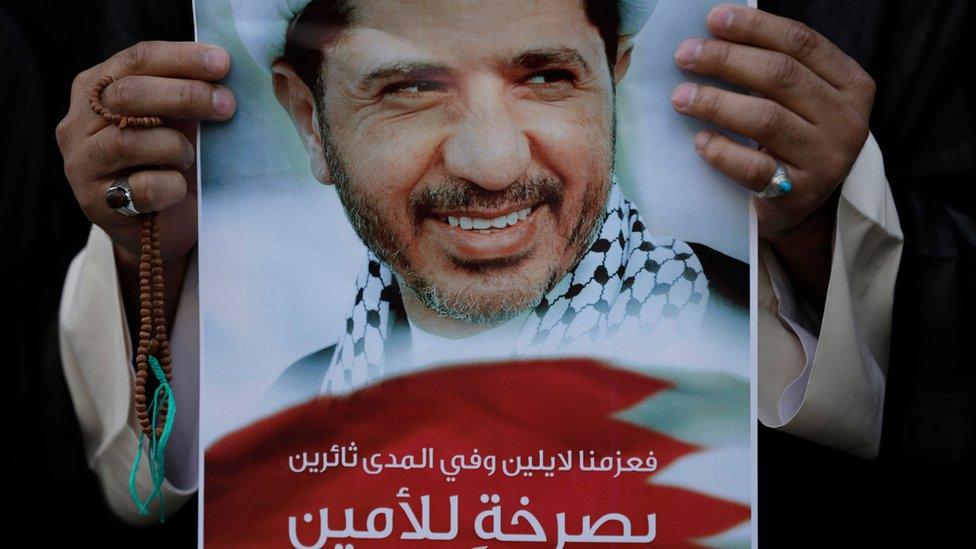
- Published13 July 2015
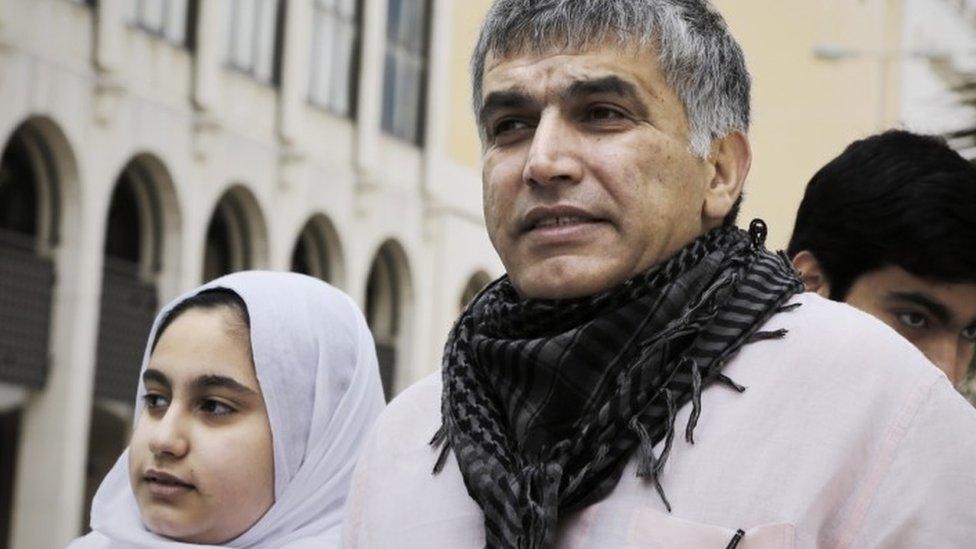
- Published29 May 2014
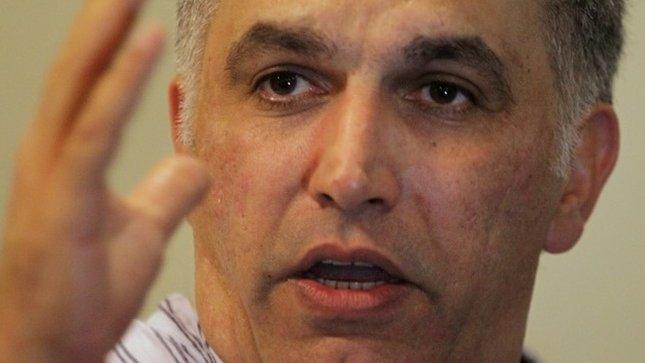
- Published12 November 2018